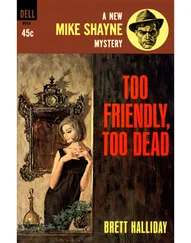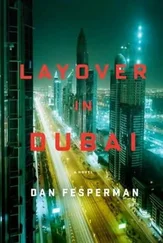Dan Fesperman - Lie in the Dark
Здесь есть возможность читать онлайн «Dan Fesperman - Lie in the Dark» весь текст электронной книги совершенно бесплатно (целиком полную версию без сокращений). В некоторых случаях можно слушать аудио, скачать через торрент в формате fb2 и присутствует краткое содержание. Жанр: Триллер, на английском языке. Описание произведения, (предисловие) а так же отзывы посетителей доступны на портале библиотеки ЛибКат.
- Название:Lie in the Dark
- Автор:
- Жанр:
- Год:неизвестен
- ISBN:нет данных
- Рейтинг книги:3 / 5. Голосов: 1
-
Избранное:Добавить в избранное
- Отзывы:
-
Ваша оценка:
- 60
- 1
- 2
- 3
- 4
- 5
Lie in the Dark: краткое содержание, описание и аннотация
Предлагаем к чтению аннотацию, описание, краткое содержание или предисловие (зависит от того, что написал сам автор книги «Lie in the Dark»). Если вы не нашли необходимую информацию о книге — напишите в комментариях, мы постараемся отыскать её.
Lie in the Dark — читать онлайн бесплатно полную книгу (весь текст) целиком
Ниже представлен текст книги, разбитый по страницам. Система сохранения места последней прочитанной страницы, позволяет с удобством читать онлайн бесплатно книгу «Lie in the Dark», без необходимости каждый раз заново искать на чём Вы остановились. Поставьте закладку, и сможете в любой момент перейти на страницу, на которой закончили чтение.
Интервал:
Закладка:
It was all the more puzzling because the goods of the sidewalk peddlers were far below the quality of what was behind the windows. They were the lowest rung of a black market that had become so meager as to be pitied. Vlado thought of Grebo and Mycky, so triumphant over their acquisition of a few Bic lighters, and wondered how Vitas could have succumbed to such paltry temptations.
Was it possible? Perhaps. Under these kinds of daily circumstances small temptations easily grew larger. When it seemed that the future would never arrive, every day became a sort of judgment day. Every morning seemed a vindication of your behavior the day before, no matter what you’d done, and it soon was evident to all that the innocent fared no better than the guilty. The old rules began to seem almost quaint, in the way that an adult looks back on adolescence and wonders how he ever got so worked up over such trivial matters as exams and weekend dates.
So perhaps Vitas had found some new agenda to operate by, although it didn’t fit with anything Vlado had ever known or heard about him.
He remembered the family’s gloomy house in Grbavica, the oldest and biggest on the block, standing out like a bunker with its angled shadows and gabled windows. Inside there were lacy curtains, doilies on the couches, a weary sense of never-ending dusting and vacuuming, of pillows that would be puffed and slipcovers smoothed as soon as you left the room. He’d felt nervous about sitting down anywhere, especially when Vitas’s mother had come down the long staircase. She was a fluttering, fretful woman, eager to ingratiate herself with the friends of her young sons, attentive yet always seeming to focus on some point just over your right shoulder. She spoke in a delicate, quavering voice, in elaborate sentences that had a way of tailing off before completion, as if her thoughts began evaporating as soon as they bubbled to the surface, and she could never quite catch up to them before they disappeared.
He remembered her particularly from his last week in high school. The Vitas family had invited their youngest son’s classmates up to their cabin in the mountains. They barbecued cevapcici over a glowing bed of wood coals, the smell of smoke and the spiced meat delicious on the sharp clean air. Spring blossoms bloomed across the green sloping meadows, with a few strips of snow still lurking in the creases and shadows. They’d all taken a nice walk, crossing grassy fields of butter-cups, cutting beneath fragrant stands of balsam, and stepping across clear, rushing streams.
They’d ridden home together in a farm truck, bouncing around tight curves halfway down the mountain before Vlado had remembered he’d left his knapsack behind. He had picked it up the next morning at the Vitas home in the city, sitting gingerly on one of the immaculate couches to stay the requisite amount of time for politeness while Mrs. Vitas asked him in an increasingly distracted way about her older son, Esmir, apparently forgetting that Vlado was a classmate of her younger son, Husayn. Esmir, in fact, was by then already off in the army, serving on the Adriatic coast, and already winning glowing reports, as he’d done in every endeavor until now.
Vlado reached the western edge of downtown, working his way behind the highrise apartments along Sniper Alley, also known as Vojvode Radomira Putnika Street, although the new government had already come up with its own, more politically inspiring name for the wide boulevard.
The buildings here had taken some of the heaviest beatings, yet were still virtually filled with residents, unless you counted the apartments facing the river. Most of those were vacant, destroyed during the first weeks of the war, when helicopters had poured red streams of tracer fire through the windows, either to root out nests of snipers or just to take out the day’s frustrations. A few entire floors had gone up in flames, and some windows were now empty and blackened. Whole sections of concrete facing were ripped away and, in some rooms torn open, you could still see the wall hangings and bits of blackened furniture.
Across the street and closer to the river was a no-man’s-land of gutted, burned highrises, a landscape of shredded metal and broken glass where some people still scavenged furtively at night, risking lives to search for old door frames, window sashes, broken furniture, anything that might be used for firewood. They crept through the damp and musty blackness, dodging rats and the sweeping beams of the sniperscopes.
Behind the apartment blocks and out of the line of fire was an entire subculture of young people, the strong ones who always found a way to enjoy themselves no matter what the cost. Vlado passed several clusters of chatting teens, some of the older boys in uniform or carrying guns. In one parking lot a basketball game was in progress. Boys dribbled a slick, underinflated ball on a wet court, the ball kicking wildly as it struck the edges of shell dimples. The steel backboard was embossed with an old pattern of shrapnel spray. The boys’ jeans and shirts were black from the grime of the ball, their faces and hands as smudged as coal miners’.
The whine of a rocket grenade interrupted the splat and ping of the ball, but only for a moment. Everyone behind the building knew instantly, through some well-practiced inner calculation, that the loudness and tone meant the shell wasn’t close enough to do them harm, and life continued after only the briefest hesitation, a collective flinch so slight that a newcomer would never have noticed.
An ill-advised hook shot clanged off the rim. The shell exploded six blocks away. The shortest boy on the court reached on his tiptoes and grabbed the rebound, dirty water flying with the slap of his hands.
After another block Vlado turned right, passing beneath a railroad overpass and climbing a slight hill before turning left toward the entrance of the cigarette factory.
A crowd of nearly a hundred was gathered outside the chain-link gates, bunched tightly but waiting quietly for the daily emergence of the one pound plastic bags of chopped tobacco. They would buy the bags for ten marks apiece, then try to resell them for double the price in the city center to people who didn’t have the energy or courage to walk to the plant.
Vlado showed his pass and slipped past three guards toting heavy machine guns. The security here was better armed than outside the presidential building, although these men wore old doubleknit pants and print shirts, with dark caps of napped wool. True to the spirit of the enterprise they worked for, cigarettes burned in the mouths of all three.
Vlado passed more guards at the plant doorway, then moved down a flight of stairs to a vast noisy cellar. Most of the manufacturing had been moved below ground long ago after shells began slamming into the upper floors. Vlado entered a room where ten women lined either side of a long table, stacking cigarettes into packs. The packs themselves had been made from whatever paper was available-old wrappers for toilet paper rolls, soap wrappers, pages from old school textbooks and even used government forms. Vlado wondered vaguely if any of his old arrest reports might be in the high piles. He idly picked up a new pack and began reading a passage from page 283 of a high school physics textbook. Something about Bernoulli’s principle.
All around him men wheeled huge green bins of chopped tobacco, heading for the hoppers of machines that were rolling and cutting cigarettes by the thousands. There were always complaints from the factory that supply was down to its last reserves of tobacco, but it looked to Vlado like production was at full tilt. He walked on, watching a conveyer belt carry newly made cigarettes toward the table of women. A man who seemed to be a foreman approached with a frown and a creased brow. They shouted to each other above the din of the machinery.
Читать дальшеИнтервал:
Закладка:
Похожие книги на «Lie in the Dark»
Представляем Вашему вниманию похожие книги на «Lie in the Dark» списком для выбора. Мы отобрали схожую по названию и смыслу литературу в надежде предоставить читателям больше вариантов отыскать новые, интересные, ещё непрочитанные произведения.
Обсуждение, отзывы о книге «Lie in the Dark» и просто собственные мнения читателей. Оставьте ваши комментарии, напишите, что Вы думаете о произведении, его смысле или главных героях. Укажите что конкретно понравилось, а что нет, и почему Вы так считаете.












